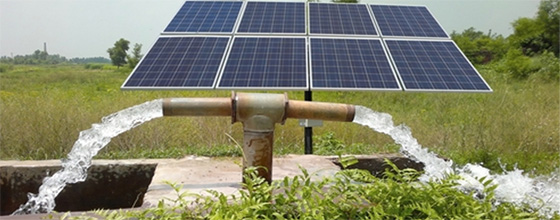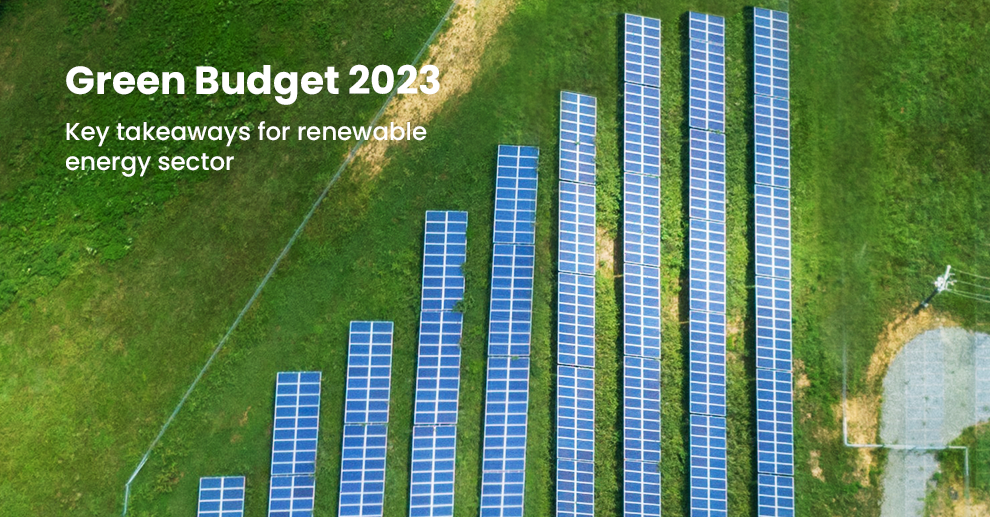On February 1 2023, the Union Finance Minister Nirmala Sitharaman presented the budget for the financial year 2023-24. Green growth has been given prominence in the Union Budget 2023-24 and has been identified as the key four opportunities that can be transformative for India in the run-up to 2047, the country’s 100th year of Independence.
A slew of measures has been announced in the budget in a bid to reduce the carbon intensity of the Indian economy, meet the clean energy targets, and generate green job opportunities. Policy initiatives related to green fuel, farming, mobility, buildings, and equipment have been given priority, with a focus on achieving net zero carbon emissions by 2070.
Here are some key highlights of the budget:
For promoting green energy transition, the budget has provided INR 35000 crores for priority capital investment towards energy transition, net zero objectives, and energy security Union Ministry of Petroleum and Natural Gas.
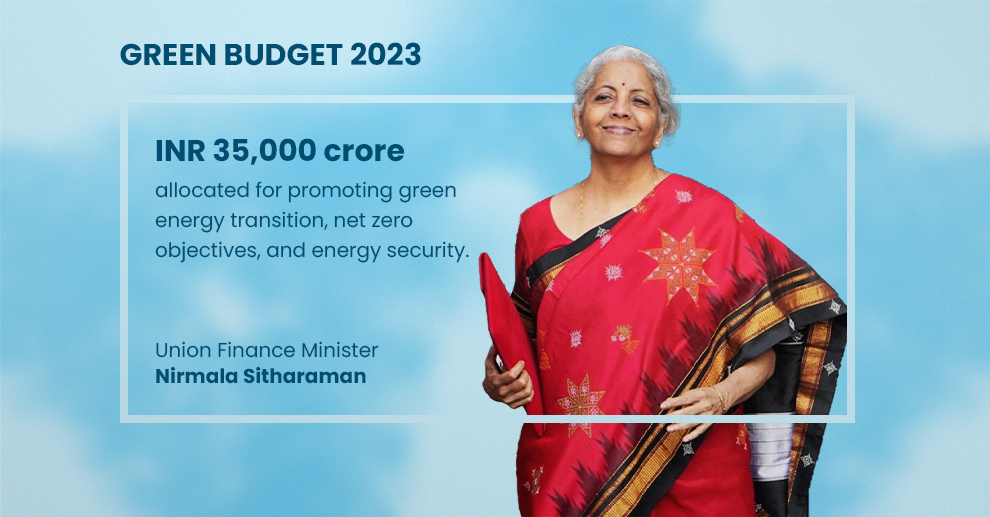
The budget has allocated a sum of INR 10,222 crore to the MNRE which is a 45% hike from the previous allocation of INR 7033 Crore.
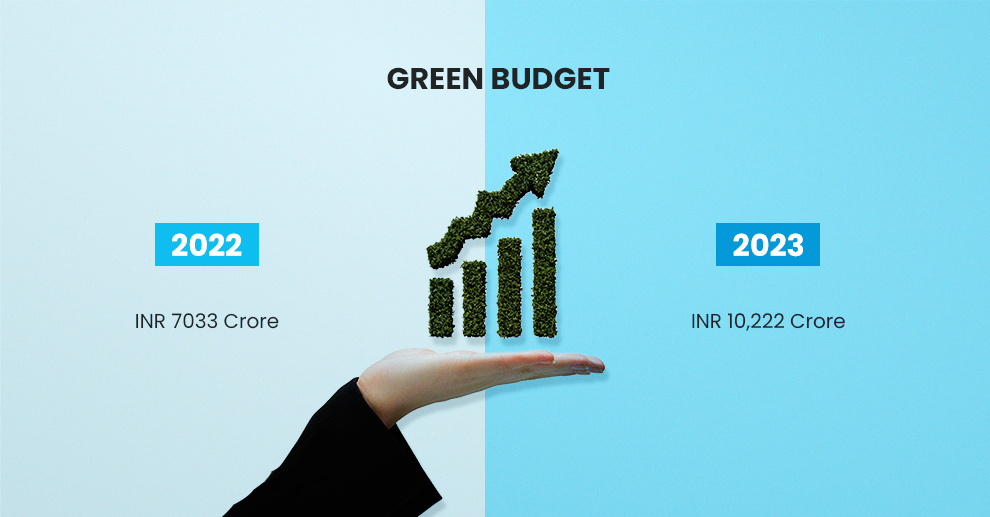
As a major boost to solar projects, the union ministry has earmarked INR 7327 crore.
The breakdown is as given:
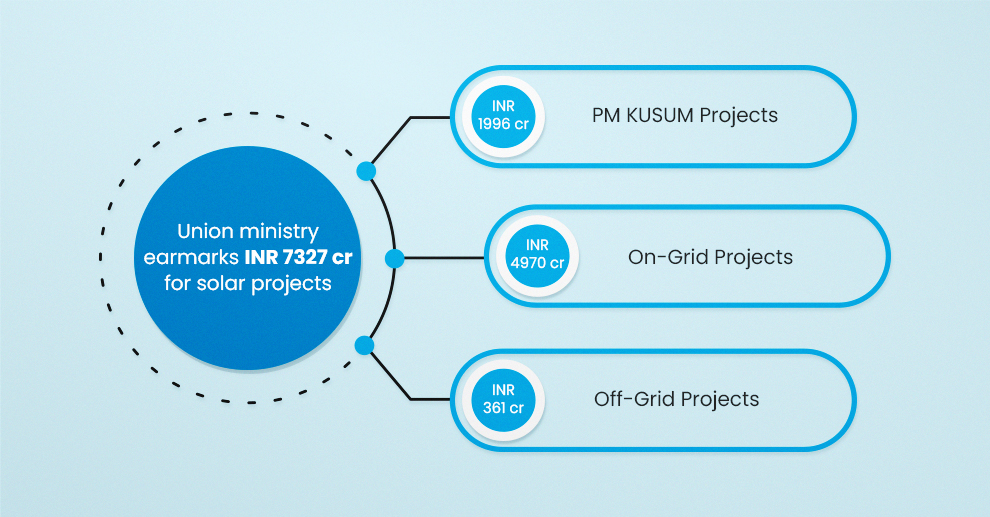
It has been declared that under the Atal Jyoti Yojana (AJAY), 20MW of concentrated solar thermal power projects and 3 lakhs of solar street lights will get developed.
To ensure swift evacuation of generated green power, an interstate transmission system for evacuation and grid integration is proposed to being constructed with an investment of INR 20700 crores including central support of INR 8300 crores. India’s first mega renewable energy transmission line project from Ladakh to Haryana will be setup under this initiative, to evacuate 13 GW of green energy and integrate into the grid.
A proposal has been made in the budget to notify a Green Credit Programme under the Environment Protection Act, 1986. This is expected to incentivize environmentally sustainable and responsive actions by companies, individuals and local bodies and shall also help additional resources for such activities.
To boost sustainable development in energy storage, a Viability Gap Funding (VGF) has been announced for battery energy storage systems(BESS) with a capacity of 4000 MWh. The Viability Gap Funding will support Public Private Partnerships that are struggling financially.
In addition, the budget has also waived customs duty on procurement of capital goods and machinery used to manufacture Lithium-ion batteries; aiming to bring down costs of energy storage systems and electric vehicles.
A capital outlay of INR 19700 crore for the National Green Hydrogen Mission has been announced to reduce fuel imports and facilitate transition to low carbon intensity economy and make the country “assume technology and market leadership in this sunrise sector”. The government targets to ramp up green hydrogen production to 500 MMT ( Million Metric Tonnes) by 2030.
Overall, the Union budget for FY 2023-24 has been encouraging for renewable energy sector. However there has been a decrease in the budget allocation to wind energy. Considering the contribution of solar energy in driving the country’s green energy targets, the allocation to MNRE could also have been more; showcasing governments intent to achieve the steep net zero targets.
About LUBI Electronics
LUBI Electronics is a leading company in India, exhibiting expertise in the automation, solar, and control panel industry.
Our solar offerings include best-in-class solar modules, solar pumps, solar pump controllers and solar inverters.
For more information on our offerings, please reach out to us at lubi@lubielectronics.com.




